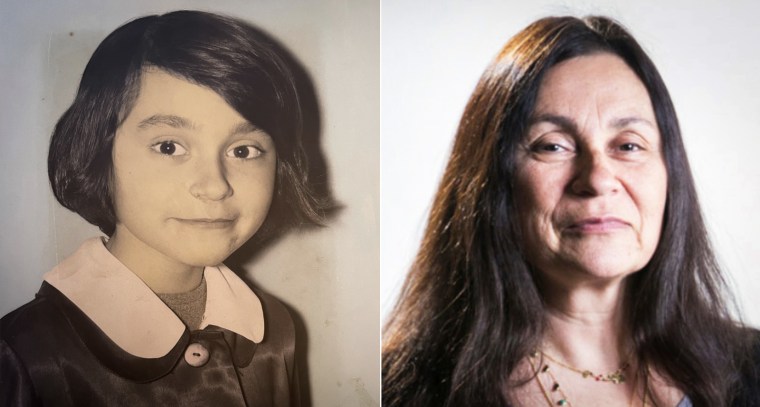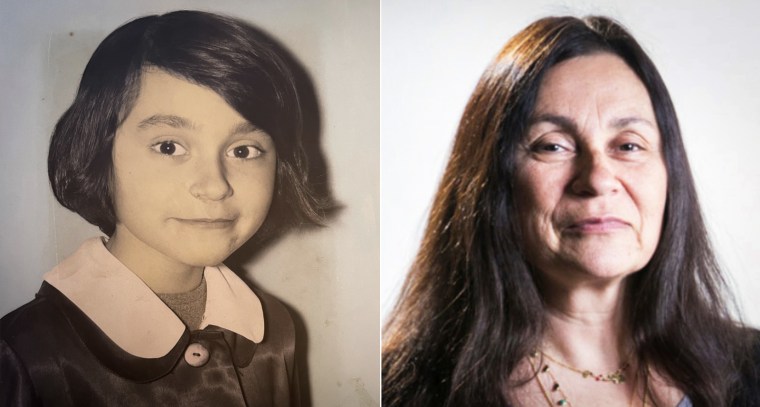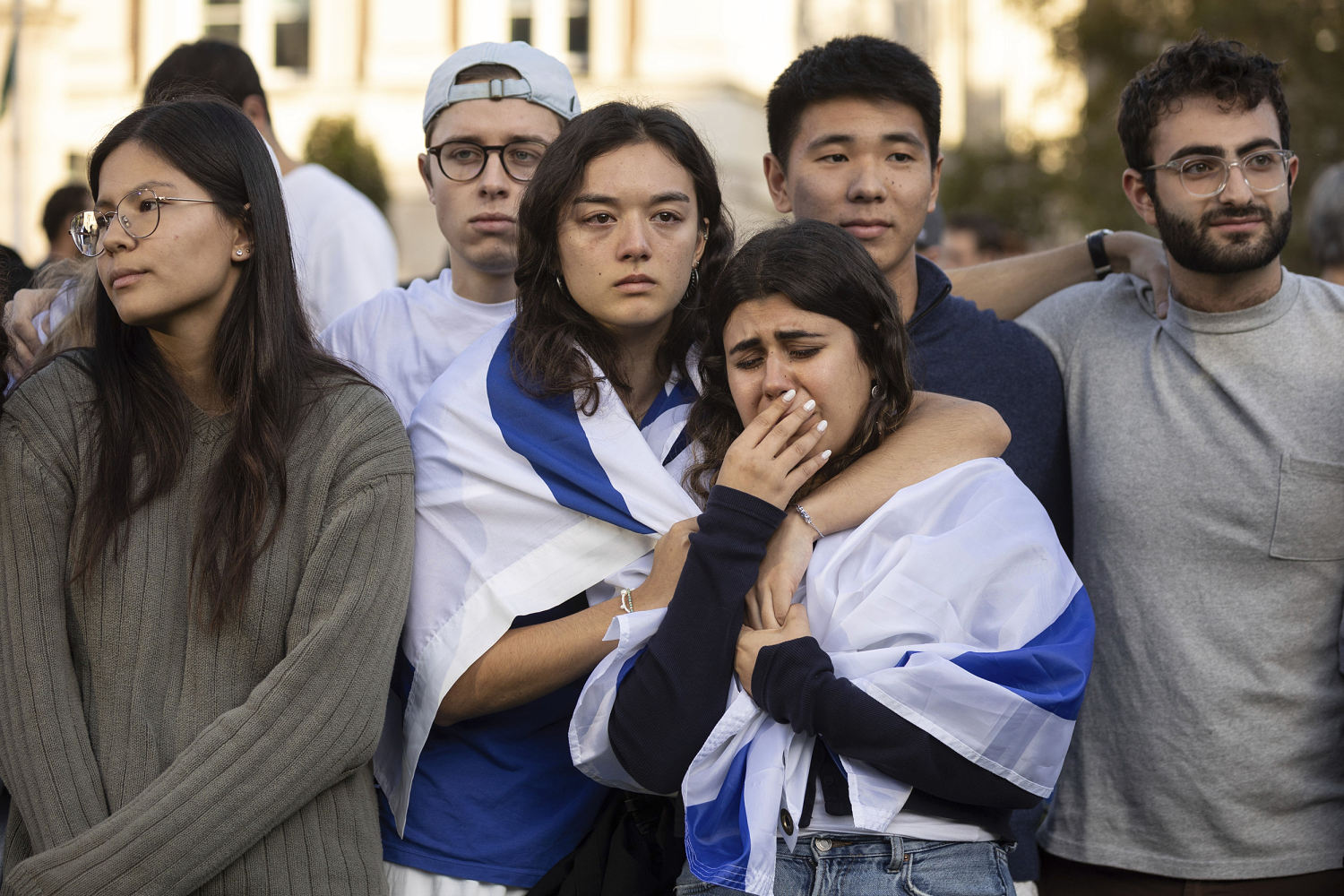There have been reports of demonstrators chanting Hamas slogans, of synagogues being defaced with swastikas and anti-Jewish hatred being posted on the internet.
There also has been, across the U.S., a spike in antisemitic incidents since the war in Gaza erupted on Oct. 7 after the militant Palestinian group Hamas launched a bloody surprise attack on Israel, experts said.
But for a New York City professor who experienced antisemitism firsthand as a 10-year-old girl in Poland, it was reports of Jewish students being harassed on campus that chilled her to the bone.
Maria Haberfeld, who teaches at John Jay College of Criminal Justice, said that in 1971 she was locked inside a school locker and then beaten up by classmates screaming “You dirty Jew” when a wave of antisemitism stoked by Poland’s then-communist government swept into her Warsaw grade school.
“I was not seriously hurt, but the visuals of this event come back to me when I witness overt displays of antisemitic behaviors,” Haberfeld said.

That and hearing pro-Palestinian student groups calling for the destruction of Israel outside the college where she teaches have left Haberfeld feeling something she didn’t expect to feel when her family found sanctuary in the U.S.
“For the first time in my many years since I came to the United States, I feel unsafe and disgusted,” she said.
In New York City, which has the largest Jewish population in the U.S., the 66 reported anti-Jewish hate crimes in October were 164% more than were reported in the same month last year, according to the New York Police Department.
In Los Angeles, the 36 anti-Jewish hate crimes reported by the police department from Oct. 6 to Oct. 30 were a 140% increase over the same period last year.
“When violent conflicts occur in the Middle East, there are those in the U.S. that exploit these horrifying events to inflame antisemitism,” said Brian Levin, a professor emeritus and the founding director of the Center for the Study of Hate and Extremism at California State University, San Bernardino. “Now, we are seeing such a dizzying array of antisemitism online, on campuses and on the streets that it is testing the ability of researchers like me to keep track of it.”
The Anti-Defamation League has also kept a tally. The Jewish advocacy group reported that 190 of the 312 antisemitic incidents it logged from Oct. 7 to Oct. 23 “were directly linked to the war in Israel and Gaza.”
The ADL also reported that at 109 of the rallies it monitored, it found “explicit or strong implicit support for Hamas and/or violence against Jews in Israel.”
Pamela Nadell, a history professor at American University in Washington, D.C., said, “Antisemitism has always been part of American history.” But the latest outbreak of this plague of hatred is different from earlier outbreaks.
“Alas, what is unique is the extent of the antisemitic vitriol magnified horrifically on social media,” said Nadell, whose coming book is titled “Antisemitism, an American Tradition.”
The online vitriol has already prompted local and federal law enforcement agencies across the U.S. to stepup security at Jewish-owned businesses and synagogues, as well as Israeli diplomatic outposts.
The online threats aren’t coming just from Hamas, NBC News has reported. Neo-Nazis have been contributing to the antisemitic chatter online, sometimes using the same rhetoric as Hamas.
There have also been numerous reports of Jewish houses of worship being vandalized with anti-Israeli graffiti.
“We often see an increase in antisemitic acts whenever there is a conflict in the Middle East,” said Holly Huffnagle, who directs the American Jewish Committee’s efforts to combat antisemitism in the U.S. “But with this war, the antisemitism has been more pronounced, more frequent and more vicious. When we hear chants like ‘Gas the Jews’ or an online threat to ‘shoot all you pig Jews,’ the antisemitism takes on a new and troubling dimension.”
Some of the fury has been stoked by reports of Israeli counterattacks on Hamas that have killed hundreds of Palestinian civilians who have been caught in the fighting, the experts said.
And the antisemitic incidents aren’t limited just to the U.S.
Over the weekend, a pro-Palestinian mob shouting antisemitic slogans and demanding to know where the “Jews” were stormed an airport in the mostly Muslim Russian republic of Dagestan.
There have also been peaceful protests in support of the Palestinians, involving tens of thousands of people, around the world.
But in the current climate, even people who don’t care about the plight of the Palestinians also feel emboldened to openly express their hatred of Jews, trackers of antisemitism say.
“The quiet part is now being said very loudly,” Huffnagle said.
Source: | This article originally belongs to Nbcnews.com










